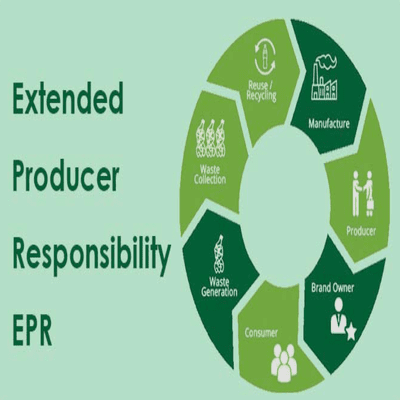
Extended Producer Responsibility (EPR) is a policy approach that holds manufacturers accountable for the environmental impact of their products throughout their lifecycle. As governments worldwide tighten regulations on waste management, businesses that manufacture, import, or distribute specific products must obtain EPR certificates to ensure compliance. This guide will walk you through the process of obtaining an EPR certificate, including eligibility, required documents, compliance obligations, and common challenges.
EPR shifts the responsibility of waste management from consumers and governments to manufacturers, encouraging sustainable production and disposal practices. By implementing EPR, governments aim to reduce waste, increase recycling rates, and promote eco-friendly product design.
Industries affected by EPR policies include:
By adhering to EPR regulations, businesses not only comply with the law but also contribute to environmental sustainability, corporate social responsibility (CSR), and enhanced brand reputation.
Not all businesses require an EPR certificate, but if your company manufactures, imports, or distributes regulated products, compliance is essential.
The following categories typically fall under EPR regulations:
Failure to comply with EPR regulations can lead to penalties, legal action, or bans on product sales in certain regions.
Obtaining an EPR certificate requires businesses to follow specific regulatory steps, ensuring they meet environmental compliance standards. The general process includes:
1. Understanding Legal Requirements: Different countries have varying EPR laws, so it is crucial to check specific regulations applicable to your industry and region.
2. Engaging with a Producer Responsibility Organization (PRO): Many businesses work with PROs that help manage waste collection and recycling on their behalf.
3. Developing a Waste Management Plan: A well-defined strategy for waste collection, recycling, and disposal must be in place before applying.
4. Gathering Required Documents: Prepare all necessary paperwork, such as business licenses, waste management agreements, and environmental impact assessments.
5. Fulfilling Financial Obligations: Some authorities require companies to pay fees or contribute to waste management funds as part of EPR compliance.
The process of applying for an EPR certificate varies by country, but the fundamental steps include:
Step 1: Register with the Relevant Authority
Identify the appropriate regulatory body for EPR certification in your country. Examples include:
Step 2: Submit Required Documents
Companies must provide documentation such as:
Step 3: Pay the Required Fees
Governments often charge a fee for EPR certification, which may vary based on industry type, production scale, and waste impact.
Step 4: Undergo Compliance Review
Regulatory authorities review the application and documents to ensure compliance with national and international environmental laws.
Step 5: Receive the EPR Certificate
Once approved, businesses receive their EPR certificate, allowing them to legally manufacture, import, or distribute products under EPR regulations.
EPR certification is not a one-time process; businesses must comply with ongoing reporting and renewal requirements.
While obtaining an EPR certificate is crucial, businesses often face hurdles such as regulatory complexity and documentation issues. Here’s how to overcome them:
Beyond regulatory compliance, EPR certification enhances corporate sustainability and brand reputation.
EPR certification is an essential step for businesses committed to responsible production and waste management. By understanding the process, ensuring compliance, and staying up to date with regulatory requirements, companies can operate sustainably while avoiding legal and financial risks.
To learn more about EPR battery certificate in India, we recommend you to visit Metacorp as it solves legal and compliance issues of new and established businesses.





We are the pioneers in offering environmental consulting services to our patrons, giving us the first mover advantage & keeping us ahead of our competitors.
Very experienced in filing, monitoring & submission of CDSCO Compliances, Drugs Manufacturing & sale guidelines, Environmental Impact Assessment, AERB consulting services, Pollution Control Board CTE & CTO Advisory Services, Waste Management Authorization from State Pollution Control Boards, Fertilizers & Insecticides Manufacturing, Wholesale & Import Compliances
